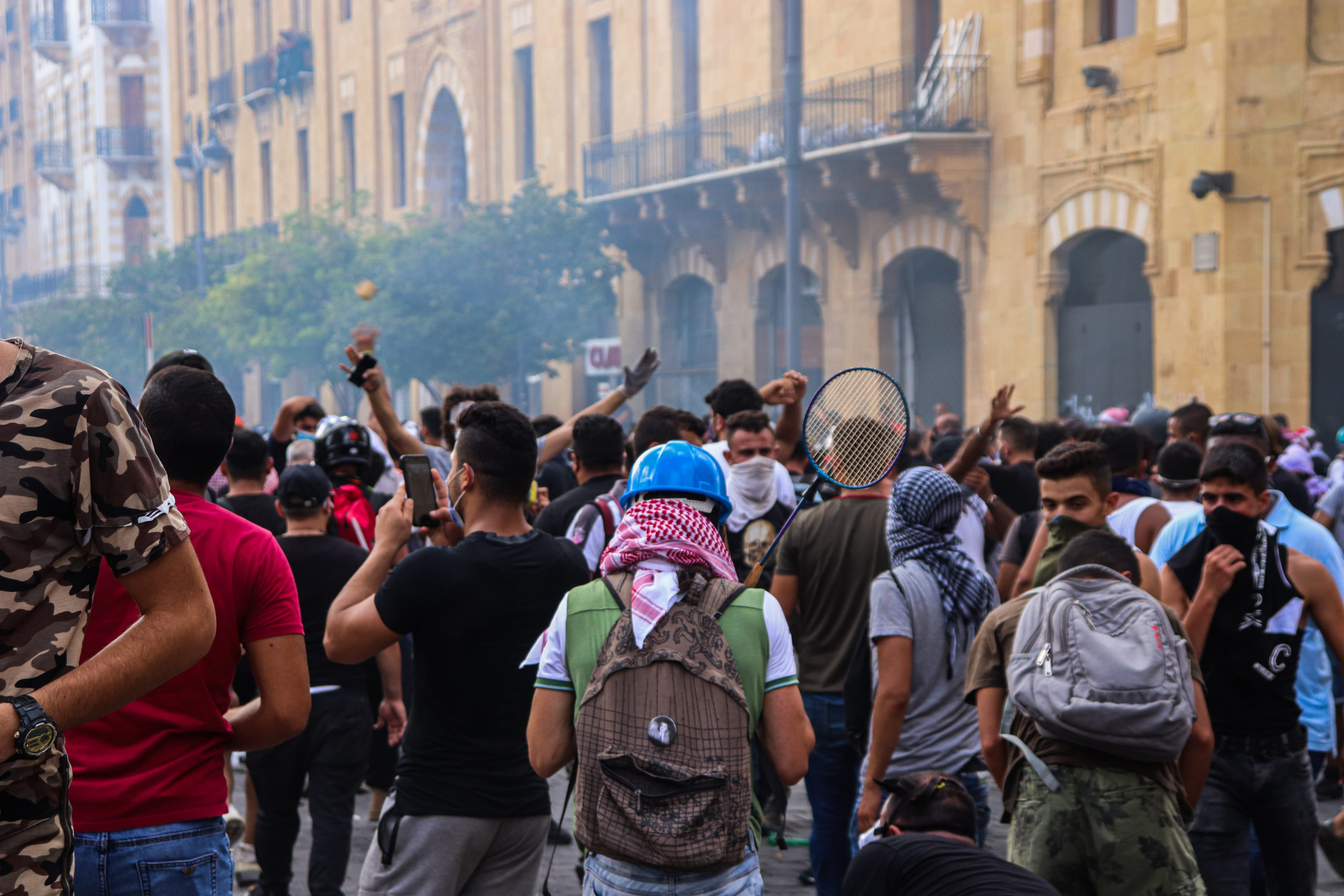The ICJ is concerned at reports that on 8 and 9 August, Lebanese security forces, including Internal Security Force (ISF) units, parliamentary police and the army, employed excessive and unlawful force against hundreds of protestors, resulting in the injury of more than 700 people and dozens of hospitalizations.
The ICJ called on the Lebanese authorities to protect the rights to freedom of peaceful assembly and expression and refrain from using excessive and unlawful force against protestors demanding justice for the 4 August explosions in Beirut’s port district.
The explosions devastated the city’s infrastructure and resulted in the death, injury and internal displacement of large numbers of its inhabitants.
The ICJ stressed that credible allegations of excessive and unlawful use of force in the context of the protests must be promptly, thoroughly and impartially investigated and those responsible must be held to account.
According to information available to the ICJ, at least 14 journalists and media personnel covering the protests were among the wounded.
According to reports, a policeman also died after falling down an elevator shaft while being chased by protesters. While there were reports that some demonstrators threw rocks and firecrackers at security forces, reports also indicate that the security forces’ response was indiscriminate and, in some instances, excessive.
“Many protestors in Lebanon continue to be met with excessive and unlawful force by security agencies, telling the same grim story of how the Lebanese authorities habitually respond to unwelcome political expression and the grievances of the Lebanese public,” said Kate Vigneswaran, the ICJ’s Middle East and North Africa Programme Senior Legal Adviser.
“The people of Beirut have the right to peacefully express their outrage, at alleged official malfeasance that apparently contributed to last week’s tragic devastation, and to expect security forces will comply with the law,” she added.
Information from ICJ interviews with three protestors, and substantiated by reports by multiple media and news agencies, reveal that security forces fired large quantities of tear gas, in addition to rubber bullets, at protestors in several locations in central Beirut, including a gathering of at least 10,000 people including children at Martyr’s Square and those who occupied Parliamentary and ministerial buildings.
Reports also indicate that live ammunition was fired by security forces during the protests, namely birdshot.
A protestor interviewed by the ICJ stated that he was shot in the arm by a rubber bullet and in the leg by a pellet gun, the latter lodging shrapnel into various parts of his body.
Social media reports reveal that some protestors were shot in the face and eyes with rubber bullets. The ISF has denied using rubber bullets.
According to another protestor, government loyalists attacked her in the presence of ISF officers and the army as she filmed scenes outside the American University Hospital, threatening her with violence and by breaking her mobile phone.
Similar reports of security forces indiscriminately beating and harassing protesters have surfaced on social media platforms.
International law, governing the use of force by law enforcement officers, which is binding on Lebanon, mandates that force is only permissible as a last resort for the sole purpose of protecting life or preventing serious injury from an imminent threat, if strictly necessary and only to the extent necessary for the performance of their duty.
All use of force must be discriminate and proportionate to the threat of harm.
The ICJ has called for a prompt, transparent, independent and impartial investigation into the 4 August explosions by a special, independent mechanism, given the documented lack of independence in certain parts of the Lebanese judiciary, which was echoed by other human rights organizations and members of the international community.
Lebanon’s President dismissed the call as “a waste of time” and instead urged the Lebanese judiciary to act swiftly to probe the incident.
Prime Minister Hassan Diab announced his cabinet’s resignation on Monday following widespread calls for the political establishment to resign from their posts following the explosion. Nine members of Parliament, two government Ministers and the Lebanese Ambassador to Jordan had also resigned from their posts over the weekend.
“The explosions were devastating for the people of Beirut, resulting not only in the loss of life and massive injuries, but severe curtailment of their rights to housing and health and their other socio-economic rights,” said Vigneswaran.
“Based on the response of the Lebanese authorities thus far, and given their poor track record in pursuing and realizing accountability, it is clear that there is an urgent need for a proper accountability mechanism to investigate the explosions and respond to victims’ demands and calls for justice. A change in government is not enough,” she added.
Contact
Kate Vigneswaran, Senior Legal Adviser, ICJ Middle East and North Africa Programme, t: +31-62-489-4664; e: kate.vigneswaran(a)icj.org
Download
Full story with additional information: Lebanon-Protests-News-Press releases-2020-ENG
Arabic version: Lebanon-Protests-News-Press releases-2020-ARA
Photo Credit: Aya Nehme




